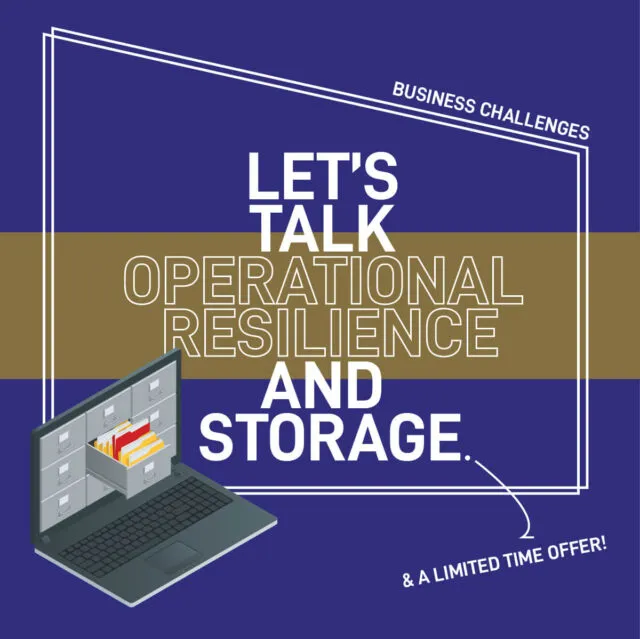How to Protect Your Data When Using Microsoft Copilot
Time to read: 10 mins
Microsoft’s long-awaited AI (artificial intelligence) solution has arrived!
Microsoft Copilot is a powerful AI-powered productivity tool that can help enhance creative and collaborative projects, whilst honing skills and focus. As the name infers, ‘Co-Pilot’ works alongside you in Microsoft 365 applications, including every favourite, Word, Excel, PowerPoint, and Outlook. Microsoft’s new AI tool supports with efficient project management by undertaking tasks such as drafting documents, summarising text, and finding information on the user’s behalf.
But it is critical that businesses keep in mind what data is being used. Copilot will utilise Office 365 data, extracting from sources such as SharePoint, OneDrive, and even busy inboxes. With potentially sensitive, private, or confidential data spread across your O365 suite, there’s a costly risk that even with the best intentions AI could expose protected information.
So, how does your business ensure that its data remains secure while taking advantage of this innovative technology? In this post, CSI’s Azure specialists explore how to protect your data when using Microsoft Copilot, focusing on key Microsoft products like Azure Information Protection (AIP), data governance, and data loss prevention (DLP).
Understanding Microsoft Copilot
Microsoft Copilot is an AI-powered productivity tool that uses large language models to help you with tasks in Microsoft 365 apps.
Microsoft’s AI can perform tasks like text generation or language translation. Copilot can even ‘write’ different kinds of creative content, such as company updates or client-facing blogs. A more common, everyday use, sees Copilot answering routine questions, helping to locate the right information quickly.

Classifying and Protecting Your Data with Azure Information Protection (AIP)
One of the first critical steps in protecting your data when using Copilot is to identify what kind of data you have and how sensitive it is. This is where Azure Information Protection becomes key in understanding your types of data. AIP is a cloud-based solution that helps you discover, classify, label, and protect your data across different locations and devices.
By using AIP, a business can ensure that its data is properly labelled and protected, helping to comply with various regulations such as HIPAA (Health Insurance Portability and Accountability Act, 1996) and GDPR (General Data Protection Regulation).
As a key example, a business could use AIP to classify customer data as “confidential” and then apply a set of security controls to that data set, such as requiring users to enter a password before they can access it. These technical controls create a kind of security baseline, controlling the ebb and flow of your O365 data and supporting confidentiality, privacy and all-round guarding data that requires strict levels of compliance.
Implementing Data Governance Policies and Processes
Data governance is the set of policies and processes that ensure the effective and efficient use of information in your organisation. It covers aspects such as data quality, data security, data privacy, and data lifecycle.
By implementing data governance in your organisation, you can manage the risks associated with data, such as breaches, leaks, errors, or misuse. It also helps you optimise the value of data by enabling better decision-making, innovation, and performance.
For example, administrators can create a data governance policy that requires all employees to use Microsoft Copilot in a secure fashion. This policy could include requirements such as using strong passwords, not sharing Copilot-generated content with unauthorised users, and deleting Copilot-generated content when it is no longer needed.
Applying Data Loss Prevention (DLP) Rules and Actions
Data loss prevention (DLP) is a technology that helps you prevent your data from being leaked, stolen, or misused by unauthorised parties. DLP can help you detect and block sensitive data from leaving your organisation, alert users, or administrators when a potential data breach occurs, and enforce remediation actions such as deleting, quarantining, or encrypting the data.
For example, you can create a DLP rule that prevents users from exporting confidential customer data from Microsoft Copilot. This rule would be triggered if a user tries to export a document that is classified as “confidential” to a USB drive or email.
Monitoring and Auditing Your Data Activities
Monitoring and auditing your data activities is crucial to data security. It helps you detect and respond to any anomalies or threats that may compromise your data, investigate, and resolve any data breaches or incidents that may occur, and identify and address any gaps or weaknesses in your data security posture.
For example, you can enable logging and auditing for your Microsoft 365 environment to track all user activity in Copilot. This will allow you to see who is using Copilot, what they are doing with it, and when they are doing it.
By following these steps, you can ensure that your data is secure while using Microsoft Copilot. With a little planning and effort, you can harness the power of AI without compromising your data security.
CSI’s Copilot Capabilities Bring AI to Your Business
Microsoft Copilot is an exciting, powerful use of artificial intelligence that can meaningfully and beneficially improve an organisation’s ability to collaborate, create and manage its O365 workflows. It’s even possible to think of Microsoft’s Copilot beyond a content engine, as a kind of smart assistance that can help employees regain better focus and tackle time-sensitive, demanding workloads.
However, onboarding a new AI resource also requires a business to take precautions in protecting data from unauthorised access, use, or disclosure.
Get in touch with CSI today to see how we can help you secure your environment whilst deploying Copilot. As your competitors start to embrace new technologies, get your business ready for the future with AI and gain a competitive edge!
Read more articles

IBM Power
Levelling Up from Legacy IBM Power Systems (An EOS Guide)
Why Modernisation Matters Modernisation is often about market competitiveness and relevance. For modernised organisations, offboarding outdated hardware is a matter…

IBM Power
Why Private infrastructure is better for AI
Running AI Models vs. Building New AI Models: Inferencing and Training To make informed platform choices depends on a clear…

Storage and Backup
Improving Operational Resilience (With AI-driven Technology)
The Financial Impact of Cyber Attacks is Underestimated On average, analysts have discovered, a cyber-attack will force a UK SME…
Ready to talk?
Get in touch today to discuss your IT challenges and goals. No matter what’s happening in your IT environment right now, discover how our experts can help your business discover its competitive edge.